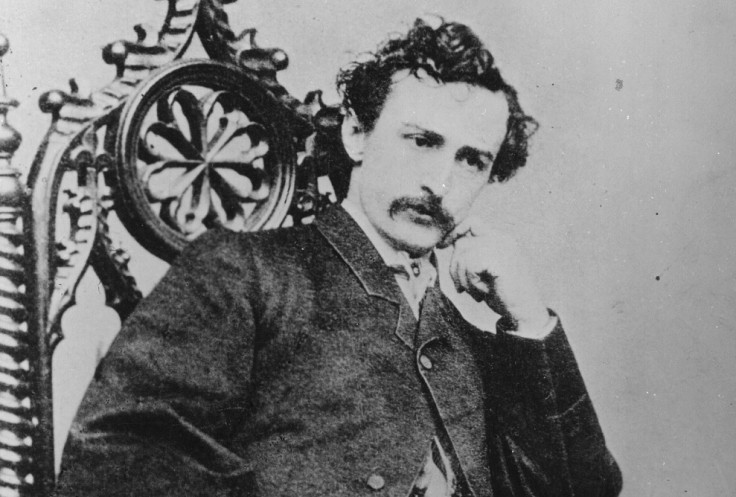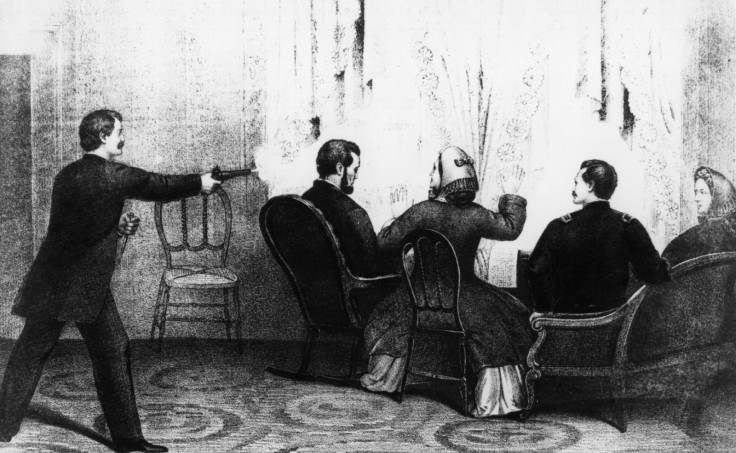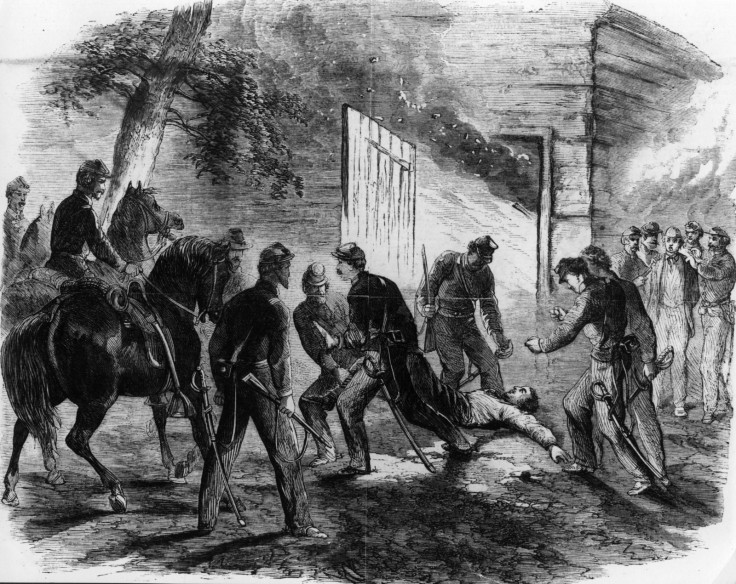Abraham Lincoln birthday: Who was stage actor John Wilkes Booth, the 16th US president's assassin?

On 11 April 1865, John Wilkes Booth stood in a crowd outside the White House as President Abraham Lincoln gave an impromptu speech out of his window, declaring his support for granting suffrage to the former slaves. Booth declared it would be the last speech Lincoln would ever make.
Three days later, on the morning of Good Friday, Booth went to Ford's Theatre, where he had played the role of Duke Pescara in The Apostate one month earlier. While picking up his mail, he was informed the president and his wife would later be attending the theatre to see the play Our American Cousin.
As the performance progressed that evening, Booth slipped into Lincoln's box. Stood in the shadows, he brandished his pistol and shot the president in the back of the head. Lincoln fell unconscious immediately and slumped forward. Booth then leapt from the box to the stage, raised his knife and shouted "sic semper tyrannis" – Latin for "thus always to tyrants" – attributed to Brutus at Caesar's assassination.
Booth fled on horseback to southern Maryland, eventually making his way to a farm in rural northern Virginia nearly two weeks later, where he was tracked down. When Booth refused to give himself up, he was shot by a Union soldier.

Early life
Booth was born on 10 May 1838 to the prominent 19<sup>th century Booth theatrical family from Maryland. His parents, British Shakespearian actor Junius Brutus Booth and his mistress Mary Ann Holmes, came to the US from England in 1821. The ninth of 10 children, Wilkes was named after English radical politician John Wilkes – a distant relative.
According to historian Nora Titone, a combination of shame and ambition between Booth and his brother Edwin – illegitimate sons – would eventually spur them to strive as rivals for fame. Edwin became a Unionist, while Booth would become known for the assassination of Lincoln.
As a child, Booth was well liked and athletic, skilled at horse-riding and accomplished at fencing. Between 1850 and 1851, he attended the Quaker-run Milton Boarding School for Boys in Sparks, Maryland, before attending an Episcopal military academy in Catonsville. Booth left school at 14, after the death of his father. By the age of 16, he was interested in both theatre and politics, becoming involved in the anti-immigrant Know Nothing movement.
Booth made his stage debut in August 1855, in the role of the Earl of Richmond in Richard III at Baltimore's Charles Street Theatre – but his inexperience led him to fluff his lines. He acted at theatres across Virginia and in 1858, his performance of Horatio in Hamlet received loud applause by the audience.
Booth performed in 83 plays that year alone. One of his favourite characters to play, Brutus – the slayer of a tyrant – would prove significant on the night he assassinated Lincoln.

Civil War
Booth became a leading actor in the 1860s, praised by the Philadelphia Press as a "natural genius". When the Civil War began in 1861, Booth was performing in Albany, New York. He was outspoken about his admiration for the South's secession, referring to it as "heroic" – enraging locals. A staunch Confederate sympathiser, he was vehement in his denunciation of Lincoln after his election in 1860 and strongly opposed the abolition of slavery.
In 1863, Booth was arrested in St Louis when he was overheard saying he "wished the president and the whole damned government would go to hell". Charged with making treasonous remarks, he was released after taking an oath of allegiance to the Union.
In the lead up to the 1864 presidential election, it began to look less likely that the Confederacy would be victorious. Enraged by the threat of Lincoln's re-election, Booth began to plan attempts to kidnap the president – spurred further by Lincoln's landslide win. After the president's assassination, The New York Times published a letter given from Booth to his sister, Asia, which explained his reasons for plotting against Lincoln.
"I have ever held the South was right," it read. "The very nomination of Abraham Lincoln, four years ago, spoke mainly war upon southern rights and institutions. The institution of African slavery is one of the greatest blessings that God had ever bestowed upon a favoured nation."
© Copyright IBTimes 2025. All rights reserved.




















